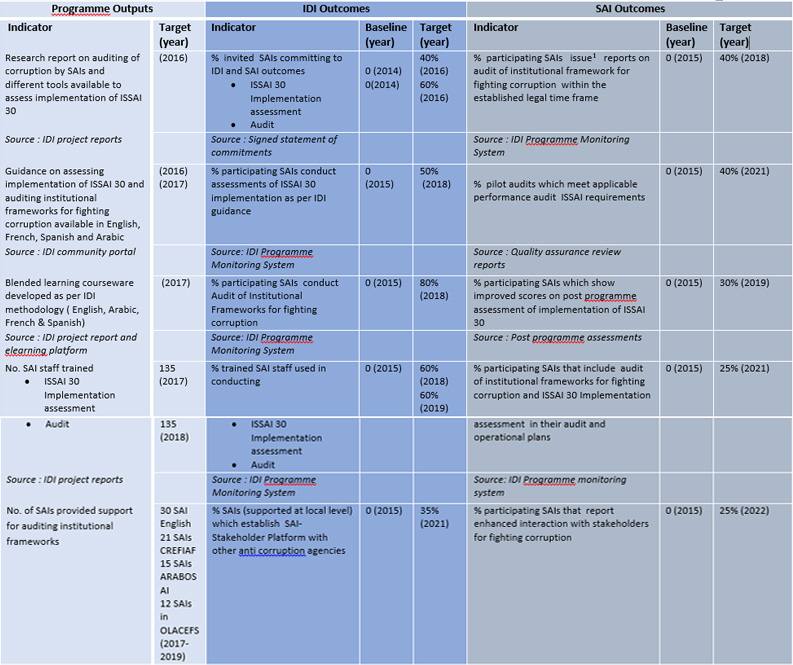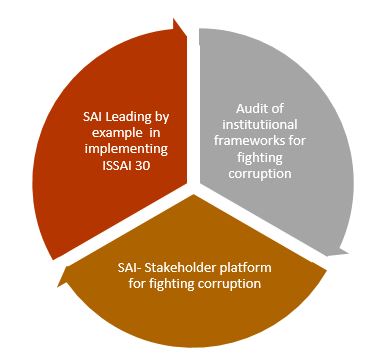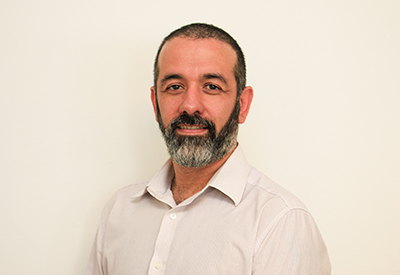About IDI
Our Cross-Cutting Priorities
Our Results
Meet the IDI Board
IDI's Board is composed of ten members from different supreme audit institutions. Get to know them better in our "Meet the Board" series.

SAIs are key players in the fight against corruption in the public sector. By their oversight function, they can help in creating an enabling environment for good governance. Audits make risks visible and help build robust and effective internal controls that contribute to the prevention of corruption. IDI is supporting SAIs across the world in enhancing their effectiveness and their contribution to the fight against corruption. IDI's SAI Fighting Corruption programme, implemented by IDI since 2016 in Africa, Latin America, Europe, Asia, Arabic world and the Pacific, serves this purpose with the following components:
Corruption is commonly defined as the misuse or the abuse of public office for private gain. It comes in various forms and a wide array of illicit behaviours, such as bribery, extortion, fraud, nepotism, graft, speed money, pilferage, theft, embezzlement, falsification of records, kickbacks, influence peddling, and campaign contributions. Corruption causes damage to public institutions ranging from financial loss to loss of performance, reputation and credibility. Corruption also results in hardship to citizens and compromises service delivered. SAIs can be key players in the fight against corruption. By virtue of their oversight function, they can help in creating an enabling environment for good governance. Audits, make risks visible, building robust and effective internal controls that contribute to the prevention of corruption. By reporting their audit findings to Parliament and publicizing them, SAIs contribute to a climate of transparency that assist in the detection and prevention of corruption. SAIs have different mandates for fighting corruption. Many SAIs come across corruption in course of their audits and have a role in reporting and following up on such issues. As a public institution, it is also important that SAIs lead by example in the fight against corruption. ISSAI 30 requires SAIs to have and implement a code of ethics to ensure ethical behaviour.
The 2014 Global Survey indicates that many SAIs face considerable challenges in fulfilling their mandates of preventing, detecting and reporting on corruption. 98 SAIs and seven INTOSAI regions have prioritized this area for support. IDI’s prioritization matrix also indicates this initiative as a high priority initiative addressing the needs of SAIs in developing countries. The initiative design has been developed and agreed upon with a wide variety of stakeholders at the planning meeting of stakeholders in 2015. In 2015, 21 SAIs in CREFIAF signed a statement of commitments covering all elements of the initiative design. In the SAI management meetings conducted in ASOSAI, ARABOSAI, and PASAI, and based on the prioritization done by CAROSAI, 40 SAIs indicated this initiative as one of the top three priorities.
In 2016 there have been three important developments that affect this initiative – The IDI has a revised cooperative audit model that will look at not only SAI commitment but also to the SAIs readiness to conduct the audit. Secondly, under the Auditing SDGs initiative a decision has been taken to focus on Goal 16 (especially 16.5 related to fighting against corruption) besides looking at the preparedness of overall governance framework for implementation of SDGs. As such, the audit component in this initiative will be linked to the initiative on ‘Auditing SDGs’. To maintain the quality of support provided, the IDI has decided to limit the number of SAIs included in each round of cooperative audit to keep this manageable in terms of the resources provided. Consequently, some of the targets and the projects have been revised in this version of the initiative plan.

The programme envisages achieving this objective by supporting participating SAIs in enhancing results in the following three areas:
SAI Leading by example in implementing ISSAI 30- Code of Ethics. Even as SAIs contribute to the fight against corruption in the country, they need to ensure that their own ethical practices are robust. SAIs are expected to undertake a review of their ethical practices based on ISSAI 30. Available tools in the SAI community will be explored to provide guidance in this regard. SAI teams will be trained to conduct such assessments. Participating SAIs are expected to conduct the assessments as a part of the programme.
Audit of Institutional Frameworks for fighting corruption. SAIs will be supported in conducting ISSAI based performance audits of the institutional framework for fighting corruption. The tools and guidance developed for providing this support are expected to be based on assessment methodologies development by UNDP’s GAIN programme.
SAI-Stakeholder Platform for fighting corruption. This aspect will be an engagement at the SAI level. Depending on the need and commitment of the SAIs, the IDI will support selected SAIs in setting up or enhancing SAI-stakeholder platform for fighting corruption in the respective countries. This aspect would involve advocacy, dialogue with SAI’s partners in fighting corruption and bringing together different stakeholders at the country level for the common cause of fighting corruption.

The SFC team is happy to answer any question you might have about the initiative. Contact the team via e-mail at sfc@idi.no.
SFC Team Members




